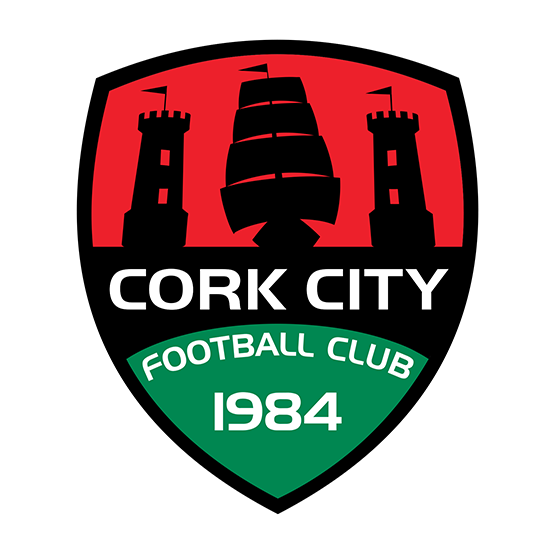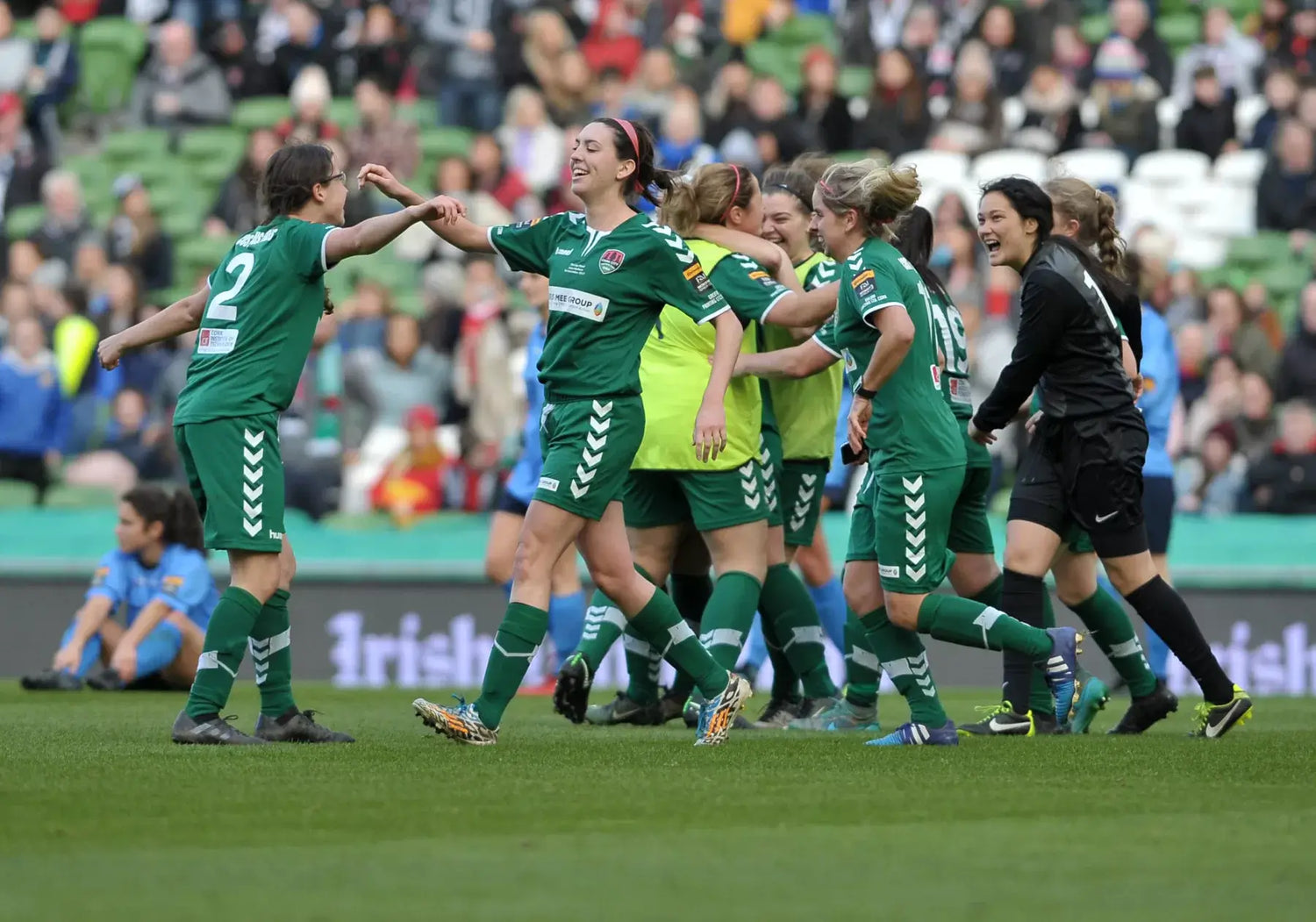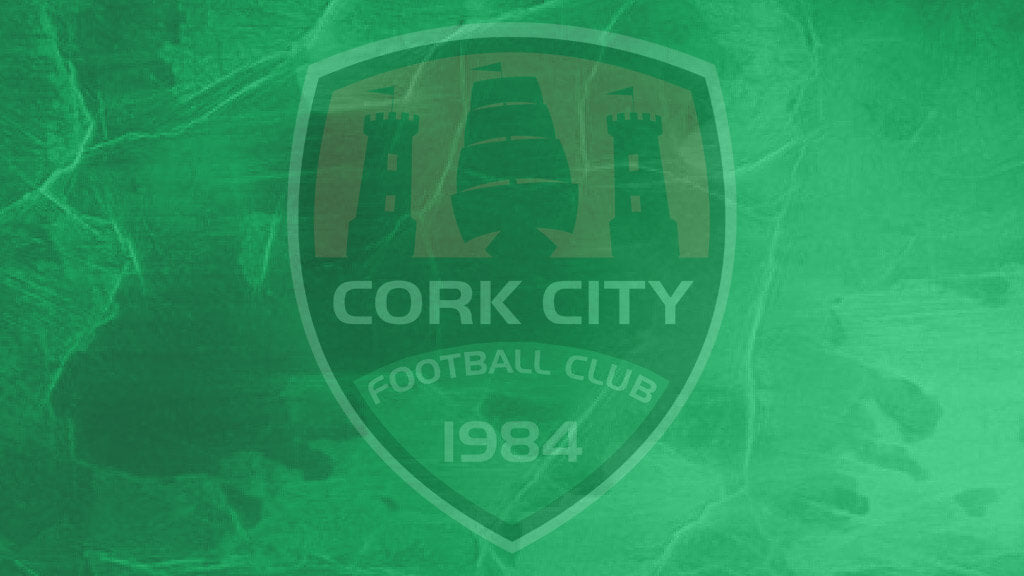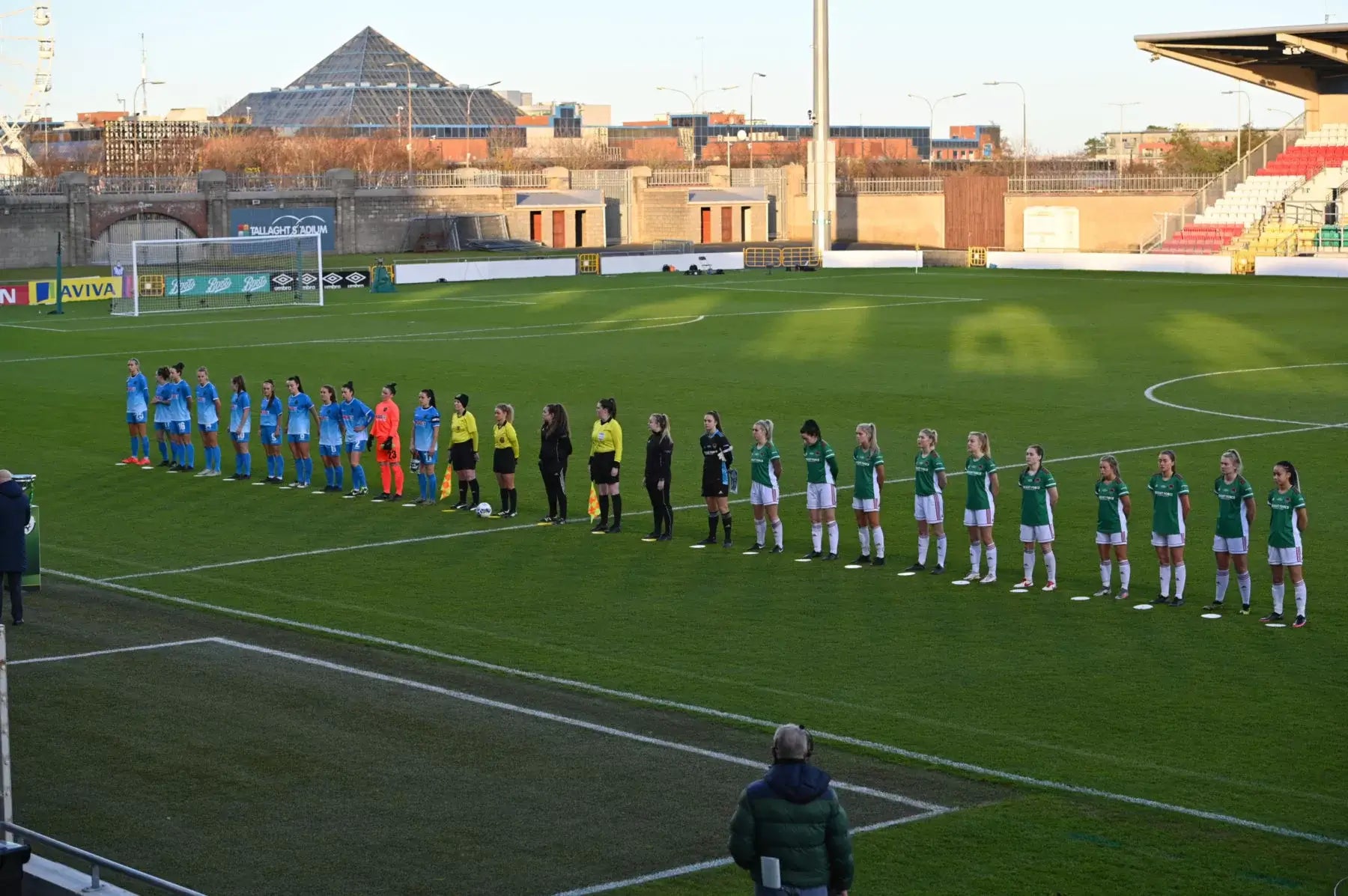The below interview appeared in the last two issues of City Edition of 2020. Chris O'Mahony spoke to former City player Meghan Bourque about her time at the club.
Dr Meghan Bourque’s time at Cork City may have been brief, but it was also very rewarding for the Canadian, who was a key player in the 2017 FAI Cup final success.
Meghan’s dream of becoming a doctor saw her move to Cork to study in UCC. Being an avid footballer, one of the first things she did when she got to UCC was sign up for the intervarsity team.
“After completing my Bachelor of Science at McGill University I knew I wanted to pursue Medicine as a career path,” says the 27-year-old. “Unlike in Ireland, in North America we are required to complete a bachelor’s degree prior to entering medical school. The year after graduation, I applied to medical schools in Ontario and also applied to Irish programmes. I became aware of the graduate entry medicine programmes in Ireland through a family friend. Given my family’s Irish heritage, with extended relatives (Maloney) in Westmeath, along with my passion for travel, and desire to visit Ireland, I didn’t think twice about applying.
“In the end, I was accepted to UCC while being waitlisted for an Ontario medical school programme, which I did not get off of. So I packed my bags and headed to Cork.
“I first became aware of Cork City FC through my involvement with UCC Varsity Women’s Soccer. I remember Paul Dunton mentioning to me that the coach of Cork City might give me a ring to discuss joining the team for preseason in January 2017. I agreed to the call with Frank [Kelleher] and I couldn’t say no when he asked me to come out for a trial.
Joining up with Cork City gave Meghan a completely different outlook to playing elite sport.
“I was pleasantly surprised by the club from the start,” she says. “Training with Cork City FC Women’s was definitely a step up from what I had been doing with UCC, not to mind it had been a few years since I was competitively training with my former university team. So I felt out of touch with the intensity and remember being impressed by the skill I was surrounded by on the field.
“What really struck me was how the level of play and coaching could be so good without all of the ‘bells and whistles’. When I was on scholarship at McGill University, where played for five years, we trained every day, all of our gear was paid for, we had our own dressing room, we practiced and played on a beautiful artificial turf pitch at Molson Stadium in Montreal with a seating capacity of 25,000 people. It was my full-time job for those five years, putting in 40+ hours a week to the team while balancing full-time pre-med studies. And that was always what I thought it meant to train and play at that level.
“But after getting to Cork City I realised that all of the gear, the beautiful fields – they weren’t necessary. In other words, having more funding didn’t make you the better team. Cork City really changed my perspective on the game in that way, it simplified things. The spirit in the dressing room and on the field also left a lasting impression on me. There was a simplicity to the players’ approach to the game. You knew you could rely on your teammates on the field without question. You knew they would work hard for the club. In my opinion, this is one of the things I appreciate most about Irish culture, the spirit, loyalty, and hard-working nature of the people. The spirit of Cork City was no different.”
After taking a break from football due to her extensive workload at university, she came back to Cork City for preseason in January of this year, but her comeback was short-lived.
“I began playing with Cork City half-way through my second year of medical school at UCC. I had to take some time away from the club a year later in 2018 as school commitments ramped up and I made extra efforts to ensure I could apply to medical training programmes back in Canada. This meant flying back to Canada and the USA for months at a time for clinical rotations and national board exams. By the start of my fourth and final year of studies, I had more flexibility with my schedule and decided to try to make a return to the game. I spoke at lengths with Rónán [Collins] and the staff at the start of preseason to ensure all cards were laid out. I wouldn’t be able to commit to attending every training session with my studies. So we agreed on an adjusted training schedule for me. The other piece was that I planned to be in Ireland until my graduation which was scheduled for May 29, 2020. Assuming I matched back to a programme in Canada, which was the goal, that job would start July 1st. So I intended to be around for the entirety of preseason and the first half of the season. A few of my classmates were very discouraging of my plan to return to play. ‘You won’t have time,’ ‘what are you doing?’ were the type of comments I was getting but I disagreed. It felt so good to get back to training and to be part of a team environment again, at least until the pandemic hit.
“Things definitely felt different this year than previous preseasons. There were a lot of new faces present, at least new to me and the team leadership changed. The team dynamic was much different than the way I remember it a few years ago, in a positive way. I was very impressed by the skill of some of the younger players that had recently moved up to training with the senior squad. The pandemic obviously impacted preseason training significantly. It was great to see how the staff adjusted by putting together a home training schedule and I was amazed at how self-directed the girls were completing these home plans. It has been a pleasure following the team’s success from afar as they’ve finally gotten back to playing games.”
Meghan had planned to play the first part of the 2020 WNL season with Cork City and was enjoying preseason when the Covid-19 outbreak began and this would see her end her stay in Ireland prematurely.
“I went home early because of the uncertainty around border closures,” said the 27-year-old midfielder.
“My job in Canada was always scheduled to start July 1, and I was required to be on-site for training mid-June. Basically, I wanted to ensure I wouldn't be stuck in Ireland and unable to make it home to start my job, so I had to leave early.
“I am in my first year as a medical resident in family medicine. What that means is that I function similar to an intern but I am already in my selected stream of practice. I see patients independently, come up with a care plan, and then review with my staff if any changes need to be made. The programme is two years long and has residents rotating through pediatrics, obstetrics, emergency medicine, internal medicine, and family medicine. I work approximately 12-16 hours a day and on call a few times per month. My first four months have been on full-time family medicine and now I have moved onto pediatric emergency.
“I think Canada is doing its best to manage the pandemic but it is an ongoing struggle, particularly as we enter the second wave. Since the school year resumed and with cooler weather upon us, lots of people are fighting flu-like symptoms. Positive case counts are on the rise again, as are the number of tests being performed. Our Ontario public health department cannot keep up with the testing demand. The province is starting to bring back restrictions on indoor dining and social circles. I think our public health system is going to continue to struggle as they figure out best measures to enforce to ensure peoples’ safety while maintaining as much normality in our day-to-day as possible.
“In terms of how the pandemic has impacted my job, the answer is in every way possible. For the past four months, I have been based in a large primary care center. Most of our patient appointments are being carried out over the phone or by video. We have to think twice before letting patients come into the clinic for a physical assessment. This has significantly impacted the type of medicine I am able to practice in primary care right now. I have not had the same hands-on clinical experience I would have had if we were seeing all patients in-person as we normally would. And it means that a lot of patients are having to seek care at hospitals that would have otherwise been managed in primary care.”
Looking back to pre-pandemic times, Bourque’s personal highlights in the Cork City jersey understandably revolve around the 2017 FAI Cup.
“Besides the final, another major highlight with the club was the semi-final against Wexford Youths,” recalls Meghan. “I ended up scoring what might have been my only goal for the club to put us ahead 1-0 in the second half of the game. We ended up surprising everyone by beating the favoured opponents 3-0 that day. I won’t forget how proud I was driving home that night from the game. It felt surreal – we were going to the FAI Cup final and it started to sink in just how big a deal it was that we had qualified.
“Everything around the FAI Cup final all felt pretty surreal. I was stressed, as usual, with my studies. I actually had to get special permission from the Dean of Medicine to postpone a midterm exam to attend the match. That was the reason why my classmates were not in the stadium that day. I remember feeling nervous about my health as well. Two to three weeks prior to the final, I suffered a concussion while playing a league game with Cork City. The timing really couldn’t have been worse because it meant in the few weeks leading up to the final I wasn’t training, and my fitness obviously dropped. So, as I mentally prepared for the final, I just wanted to survive it and not let the team down. I had never played in such a professional stadium before. Like I said before, my home field at McGill University was pretty spectacular, but the Aviva Stadium was in a league of its own. Stepping onto the pitch for the first time is something I will never forget. The perfect combination of artificial and real grass – it was the nicest surface I have ever played on in my life.”
Ahead of the 2017 FAI Cup final, Cork City brought out a commemorative scarf with the details of the men’s final on one side and the details of the women’s final on the other. The scarves were a big hit, and a batch even made their way across the Atlantic.
“You’re right about the scarves,” says Meghan. “My family was not in attendance that day, although my mom was very close to flying over for the match. To this day she regrets her decision not to come. So I brought scarves home for my parents, family, and our family friend, Siobhan. Siobhan came to watch me that day. She is a family friend from Canada who is from Belfast and was over visiting her family in Ireland at the time of the match. She wouldn’t miss the opportunity to watch me play so she drove down that day with her mother and sister.
“I recall the match as not being my best, but like I said, I just wanted to get through it and have the team come out on top. The celebrations after the win were unlike anything I have ever experienced. It was amazing to be part of such a homecoming. Although I couldn’t keep up with all of the drinking!”
“I’ll be tuned in on Saturday wearing my City colours and cheering the ladies on from Canada. I only wish I could be there in person to be cheering the team on. Stay proud ladies and go get the job done!”
Interview by Chris O’Mahony




Leave a comment
This site is protected by reCAPTCHA and the Google Privacy Policy and Terms of Service apply.